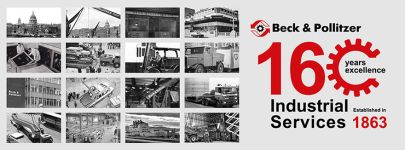Latest News
Essential components of industrial electrical installations

Industrial electrical installations are the backbone of modern manufacturing and industrial processes. These complex systems ensure the efficient and safe operation of machinery, equipment, and lighting. Understanding the essential components of these installations is crucial for both industry professionals and those seeking to learn more about electrical engineering.
What are the key elements of industrial electrical installations?
- Power supply:
- Transformers: These devices step up or down the voltage to match different equipment requirements. Step-up increases the voltage and is typically used for long-distance transmission. Whereas step-down decreases the voltage and is used to supply power to industrial equipment.
- Switchgear: Switchgear is the heart of an electrical distribution system, controlling the flow of power and providing protection against faults and overloads.
- Generators: In some cases, industrial facilities may have on-site generators to provide a backup power supply or to meet specific energy needs. Generator size is determined by the facility’s power requirements and the desired level of backup.
- Distribution systems:
- Busbars: These are conductive bars or rails that distribute electricity throughout the installation. Busbars are typically mounted on insulated supports or enclosed within busbar trunking systems for safety and protection.
- Cable trays and conduits: These structures provide a structured and organised way to route cables within the installation.
- Circuit breakers: Circuit breakers are essential for protecting electrical circuits as they automatically interrupt the flow of electricity in case of a fault or overload.
- Electrical equipment:
- Motors: These devices convert electrical energy into mechanical energy to power machinery and equipment. Energy-efficient motors are essential for reducing energy consumption and costs.
- Control panels: These panels house switches, relays, and other components that control equipment operation. Control panels typically include starters, contactors, relays, fuses, and instrumentation.
- Lighting systems: Industrial lighting systems require specific considerations to ensure adequate illumination for work areas and safety. Lighting design considerations include illuminance levels, lighting distribution, glare control, and emergency lighting.
- Cabling and wiring: Heavy-duty wiring for safe transmission of electricity to machines and systems, ensuring reliable performance. Cables are typically installed in cable trays or conduits to protect them from damage and ensure proper routing.
- Grounding and earthing:
- Grounding systems: Grounding systems provide a safe path for electrical current to flow in case of a fault, preventing electrical shock and equipment damage.
- Earthing systems: These systems connect conductive parts of equipment to the earth to ensure electrical safety. Earthing helps to equalise electrical potential and prevent dangerous voltage buildup. The systems must comply with relevant electrical codes and standards.
What are the main factors to consider in industrial electrical assemblies?
- Safety: Compliance with electrical safety regulations is paramount to prevent accidents and injuries.
- Efficiency: Industrial electrical installations should be designed to minimise energy loss and maximise efficiency.
- Reliability: The system should be reliable and able to withstand disruptions without affecting operations.
- Scalability: The installation should be designed to accommodate future growth or changes in production requirements.
- Environmental impact: Considerations should be made to reduce the environmental impact of the installation, such as energy consumption and waste generation.
Beck & Pollitzer’s electrical installation services
At Beck & Pollitzer, we are a NICEIC-approved contractor with a proven track record of providing high-quality electrical installation services to industrial clients. Our experienced and qualified engineers can design, install, and maintain a wide range of electrical systems, including:
- Control panel installation: Our team can design and install custom control panels to meet your specific needs, ensuring efficient and safe operation of your equipment. This includes the installation of electrical control systems for automated warehouses.
- Distribution supplies: We can design and install distribution systems that provide reliable power throughout your facility.
- Internal wiring design and installation: Our experts can design and install electrical wiring systems that meet all relevant safety codes and standards.
- Safety checks: We offer comprehensive electrical safety checks to identify and address any potential hazards in your existing installation.
Read more about our industrial electrical services here.
By understanding these essential components and factors, industry professionals can ensure that their electrical installations are safe, efficient, and reliable, supporting the smooth operation of their facilities. If you are looking for a qualified and experienced electrical contractor for your industrial facility, contact Beck & Pollitzer today.

